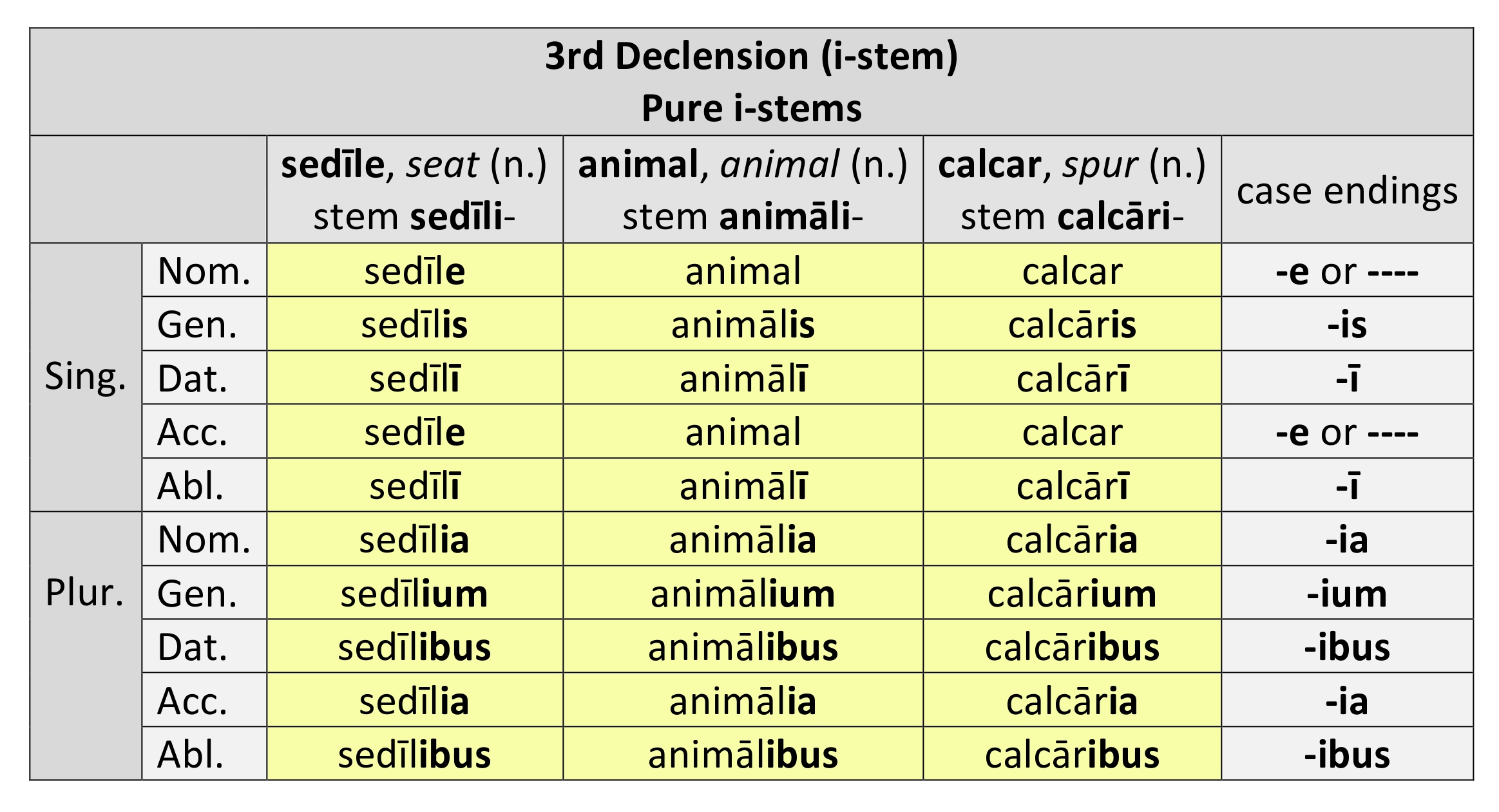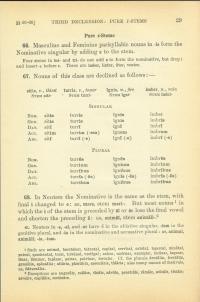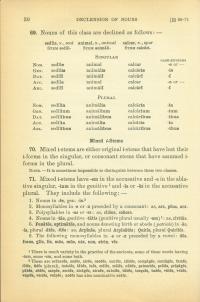68. In neuters the nominative is the same as the stem, with final i changed to e (mare, stem mari-). But most nouns1 in which the i of the stem is preceded by -āl- or -ār- lose the final vowel and shorten the preceding ā.
animăl, stem animāli-2
a. Neuters in -e, -al, and -ar have -ī in the ablative singular, -ium in the genitive plural, and -ia in the nominative and accusative plural.
animal, animālī, -ia, -ium
69. Nouns of this class are declined as follows.
Footnotes
1. Such are animal, bacchānal, bidental, capital, cervīcal, cubital, lupercal, minūtal, puteal, quadrantal, toral, tribūnal, vectīgal; calcar , cochlear, exemplar, lacūnar, laquear, tūcar, lūminar, lupānar, palear, pulvīnar, torcular . Cf. the plurals dentālia, frontālia, genuālia, spōnsālia; altāria, plantāria, speculāria, tālāria; also many names of festivals, as, Sāturnālia.
2.Exceptions are augurāle, collāre, fōcāle, nāvāle, penetrāle, rāmāle, scūtāle, tībiāle; alveāre, capillāre. cochleāre.



